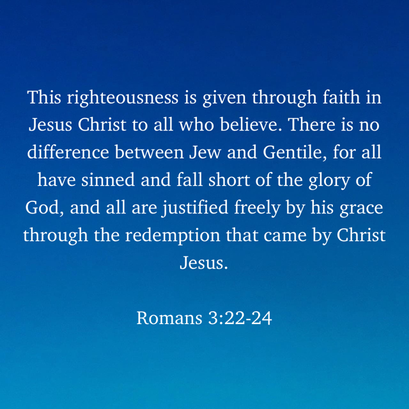|
Good morning!
We're so glad you decided to join us today!
When we meet in person, we share our joys and concerns. Take some time to think about your past week. If you have any prayer requests, please feel free to share them as a comment on this post. When you are ready, use the prayer below (source) to get started.
Father God, we gather here today under your care and protection. Thank you for your lovingkindness that never fails us. We thank you for those with us, that you would guide our thoughts and actions to bring you glory. Strengthen us and fill us with your peace. May we love and serve each other as Jesus has shown us. Fill us with the Holy Spirit to do your good work on earth. Amen.
This week's lesson is on Ephesians 1:1-14.
Ephesians includes challenging language and ideas. Our scriptures text mentions many concepts that long have been debated.
On the road to Damascus, Jesus claimed Paul as his own messenger. His zeal previously misdirected toward murderous ends was used for the making of disciples for Christ. All this happened according to the will of God. Paul seems intent to explain his doctrine. Looking to what it means to those who are faithful in Jesus Christ. Holy people affirms that these believers were set apart from others because they belonged to God. This phrase had referred only to Israel until Jesus' time. Paul used this phrasing to emphasize that Gentiles were welcomed into faith in Jesus, on equal standing with their Jewish brothers and sisters who had to also accept Christ. It was not enough or even necessary to claim heritage in Abraham, because faith was and is the primary condition for determining whether one is part of the faithful. The lives of believers are different, even out of place in the world, because our identity is found in Christ, not in human families, clans or nation. Grace and Peace to you from God our Father and the Lord Jesus Christ. Peace was a typical greeting in Hebrew, a prayer for God’s blessing to fall on his people . Grace acknowledges that asking for peace is totally based on God’s good desires, not on anything a person or people have done to earn his favor. Together Grace and Peace turned an otherwise unremarkable greeting into an expectant expression of God’s blessings. Naming God our Father in Parallel with the Lord Jesus Christ highlights the Christian revelation of the Son’s equality with the Father. Unbelieving Jews considered this new Christian belief a sin against the command to love Lord alone. However, naming Jesus Christ as Lord makes clear that Paul and other Christians understood that Jesus was well worthy of love and praise, just as God the Father is. Because we are already part of God’s family, we experience blessing in his presence now, though we still suffer because of the fallen world around us. Before the creation of the world focuses on God’s everlasting plan. Though God’s choosing us may seem like a statement of predestination, it is actually a much broader statement of God’s loving intent for all people. We were all meant to be holy and blameless in his sight. The fall threw all people into a tailspin outside of God’s good plan. But God was unwilling to let sin take its natural course and condemn all people to death. So God set in motion the plan that would call us back to him in love. Jesus was that plan. And through his death he conquered both sin and death, doing what we could not accomplish for ourselves. Our status changes as a result. We are counted as being holy (set apart in a godly way) and without blame (having our sins forgiven). We gain these attributes because of God’s efforts through Christ. Predestined echoes God’s pre-creation choice for people. Some scholars believe this means that everyone’s eternal status was decided by God before anyone was born. However, we should not fall into fatalism - the belief that free will does not exist, that we can make no choices that influence the outcome. God has chosen us by grace; we must choose him through our faith. The emphasis here is not on predestination but on adoption. God’s plan to adopt humans as his children in his holiness was fulfilled in Jesus Christ. Nothing that happened around Christ’s coming or in his ministry or his death and resurrection was haphazard, a fluke or a mistake. This act of loving mercy is described as coming from his pleasure and will. God’s desire is for us to be reconciled to him, to be included among his people. Inclusion into God’s family is a marvelous demonstration of God’s love. Our adoption results in full acceptance as children of God, with all the rights of an heir. Redemption and forgiveness are both terms used to speak of the liberation of slaves. Through the blood of Jesus, we have the means to be delivered from wrong choices and be put back on the path of God’s choosing. In the Bible there are various ways that God makes his will known to humans. One is that of a mystery being revealed, something initially hidden from human understanding but now being shown. We understand God as a self-revealing God, for we cannot unravel the deep things of God by our own deep thinking. The barrier between Jews and Gentiles is broken down through Christ: these groups can be brought together in Christ according to God’s will and purpose. Bringing everything together in Jesus will not be fully realized until he returns but let us not miss how Christ is already accomplishing this promised future. Whenever by God’s mercy a sinner becomes a saint, whenever through the gospel the estranged are reconciled, whenever through their lives of loving service Christians bring a greater measure of justice to the world, we see God’s plan already being fulfilled. After we accept the message of truth , the gospel, we are in line for a marvelous inheritance. We do not wait to begin to enjoy the blessing of this inheritance, for we are sealed by God through the gift of the Holy Spirit. Believers experience God’s presence and power now, a taste of what we will experience in full when Christ returns. The future holds not only the final defeat of sin and its effects but also spiritual fulfillment and completion.
Conclusion
The ability to praise and worship God freely and properly is indeed a part of our inheritance and a manifestation of the Holy Spirit in our lives. While all his works offer opportunities to worship, our adoption into God’s own family is an especially joyful reason for praise. May we, who have brought into the Father’s family through his loving Son and his trustworthy Spirit, erupt in praise for our salvation. Prayer Glorious Father, we are in awe of your grace. Remind us always of our standing before you, even as we wait for your Son to return in glory, In Jesus’ name we pray. Amen Questions
Benediction
This week's benediction is from the Good News Translation.
Next week's lesson picks up where we left off with Ephesians 1:15-23.
0 Comments
Leave a Reply. |
AuthorWe are a small, rural Presbyterian church in southwestern Pennsylvania. Archives
July 2024
Categories
All
|



 RSS Feed
RSS Feed